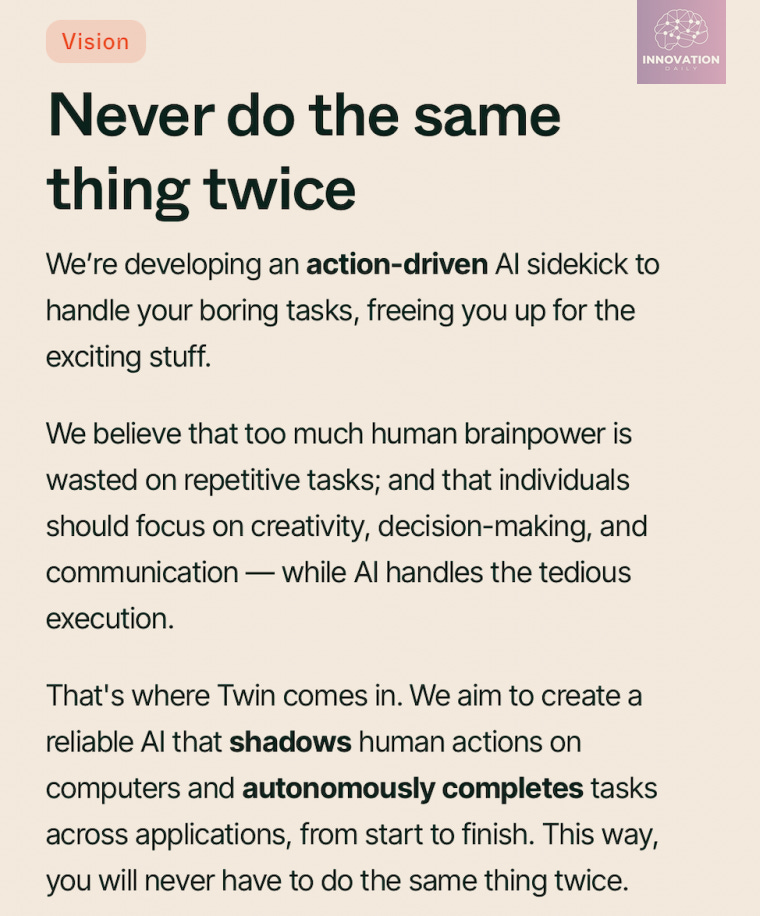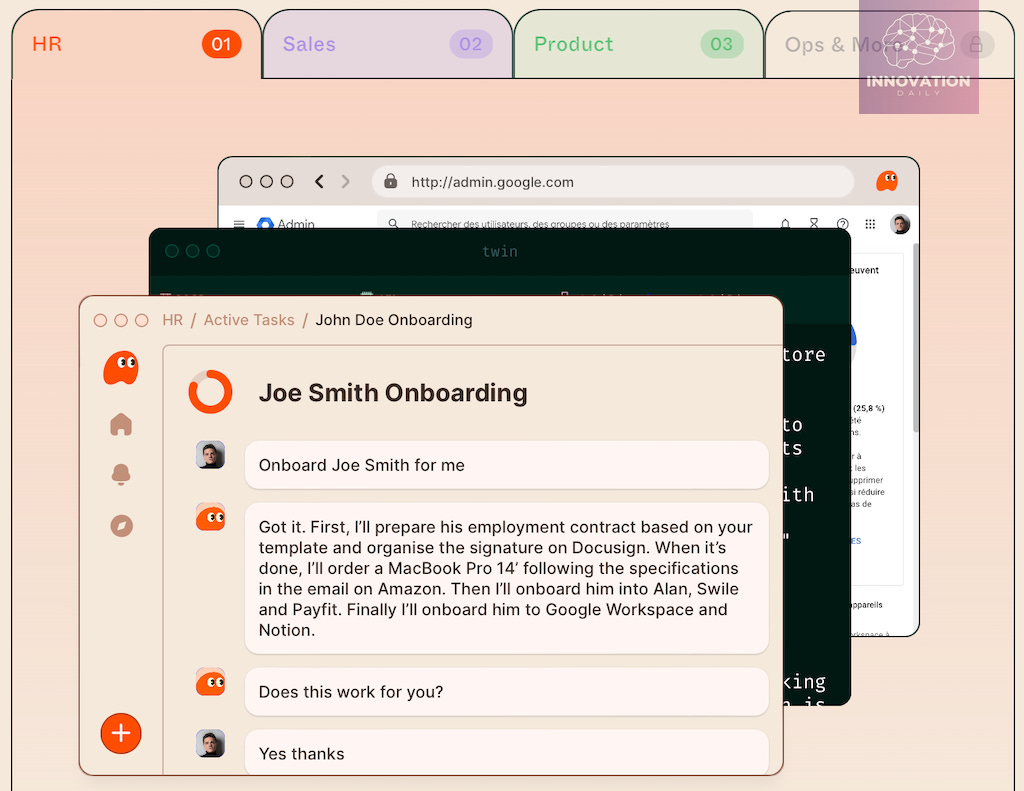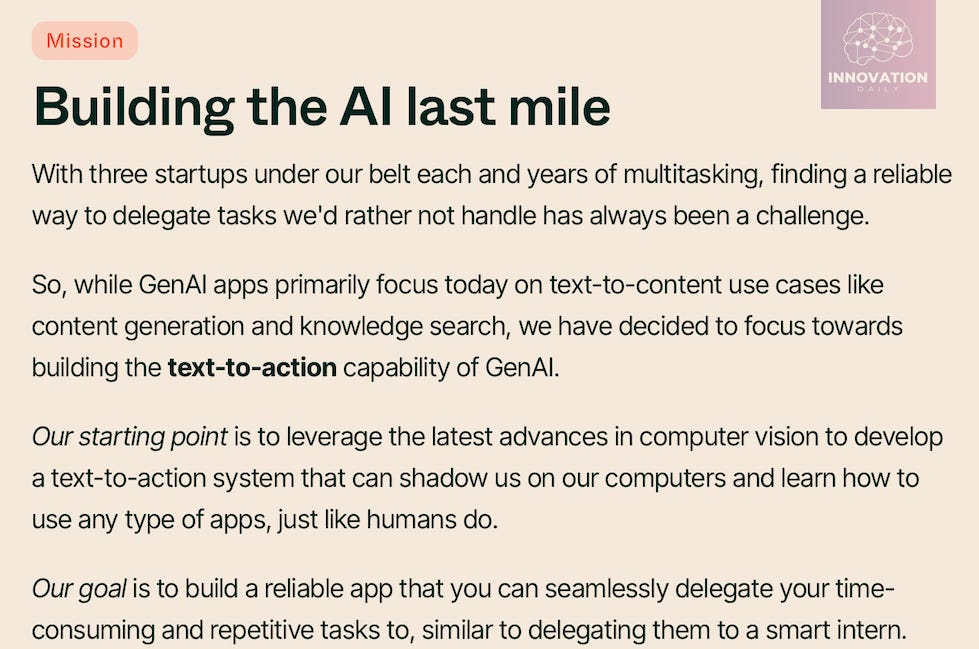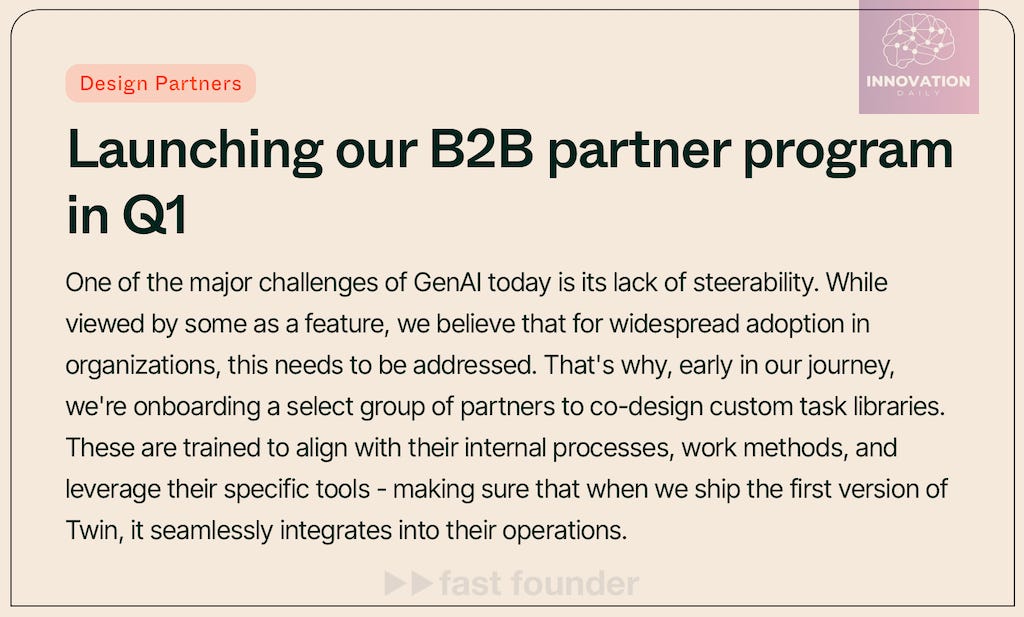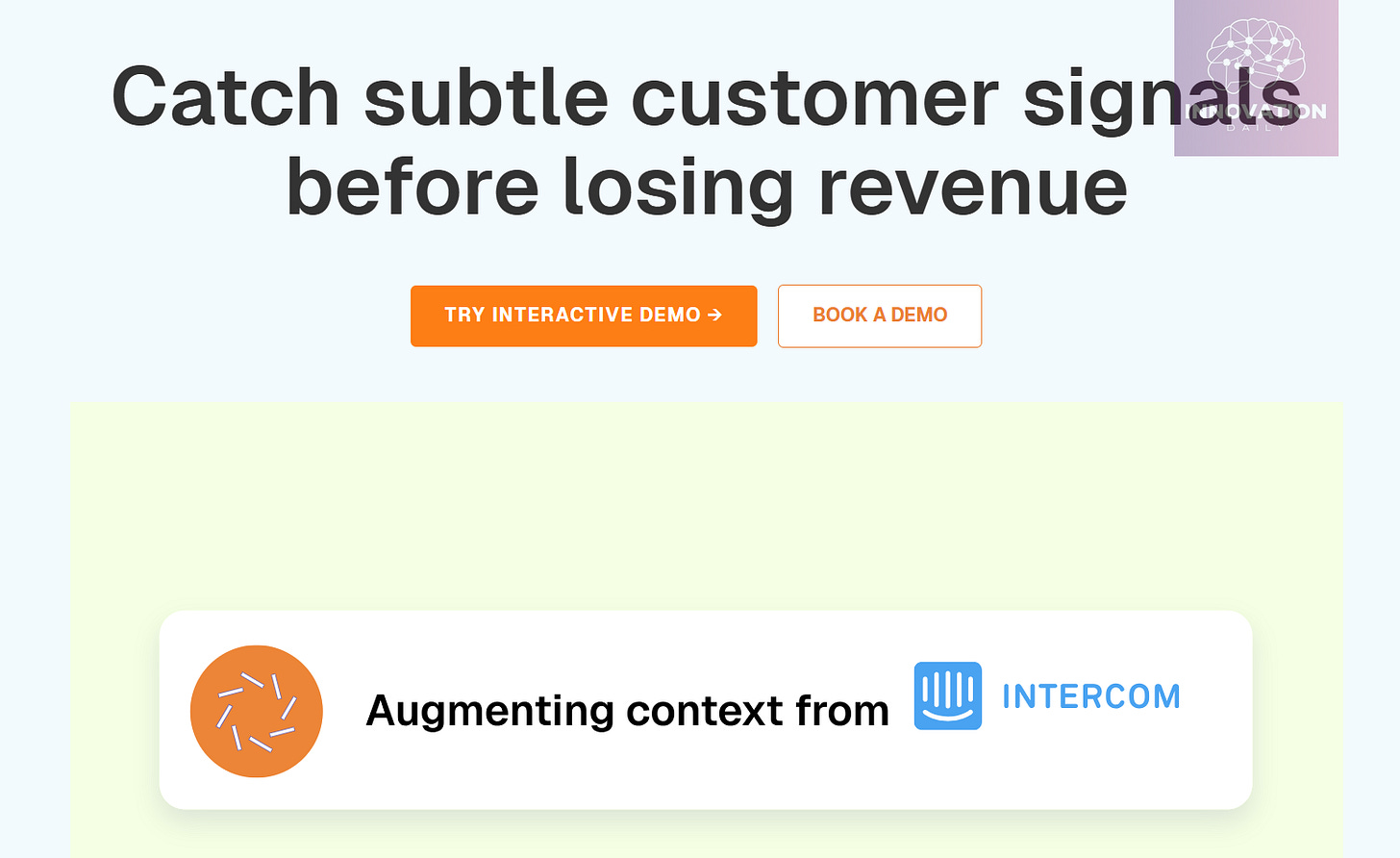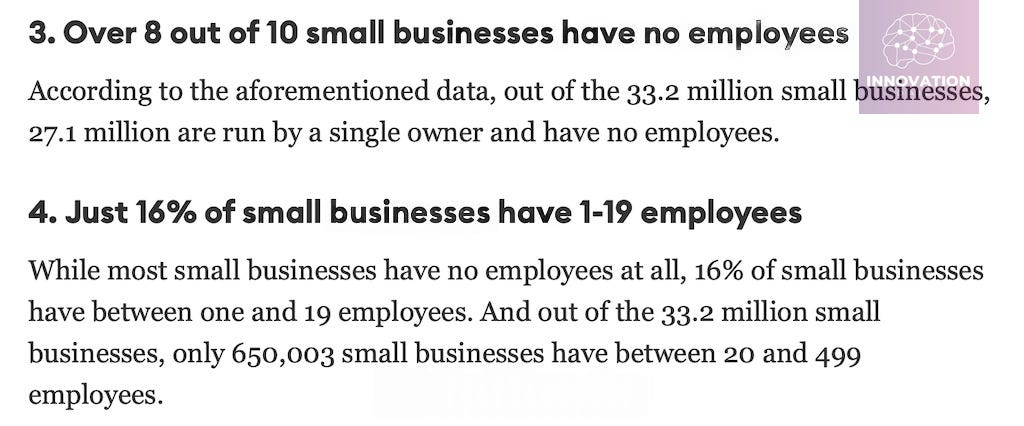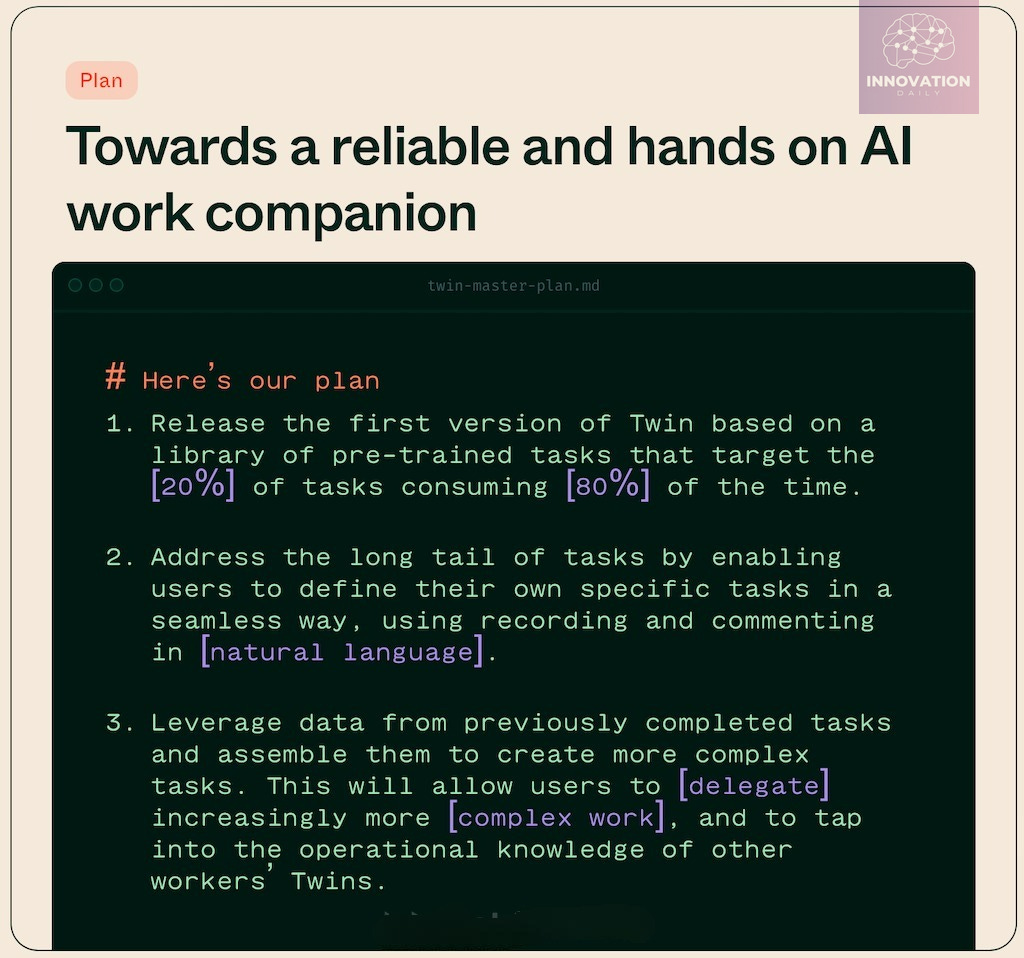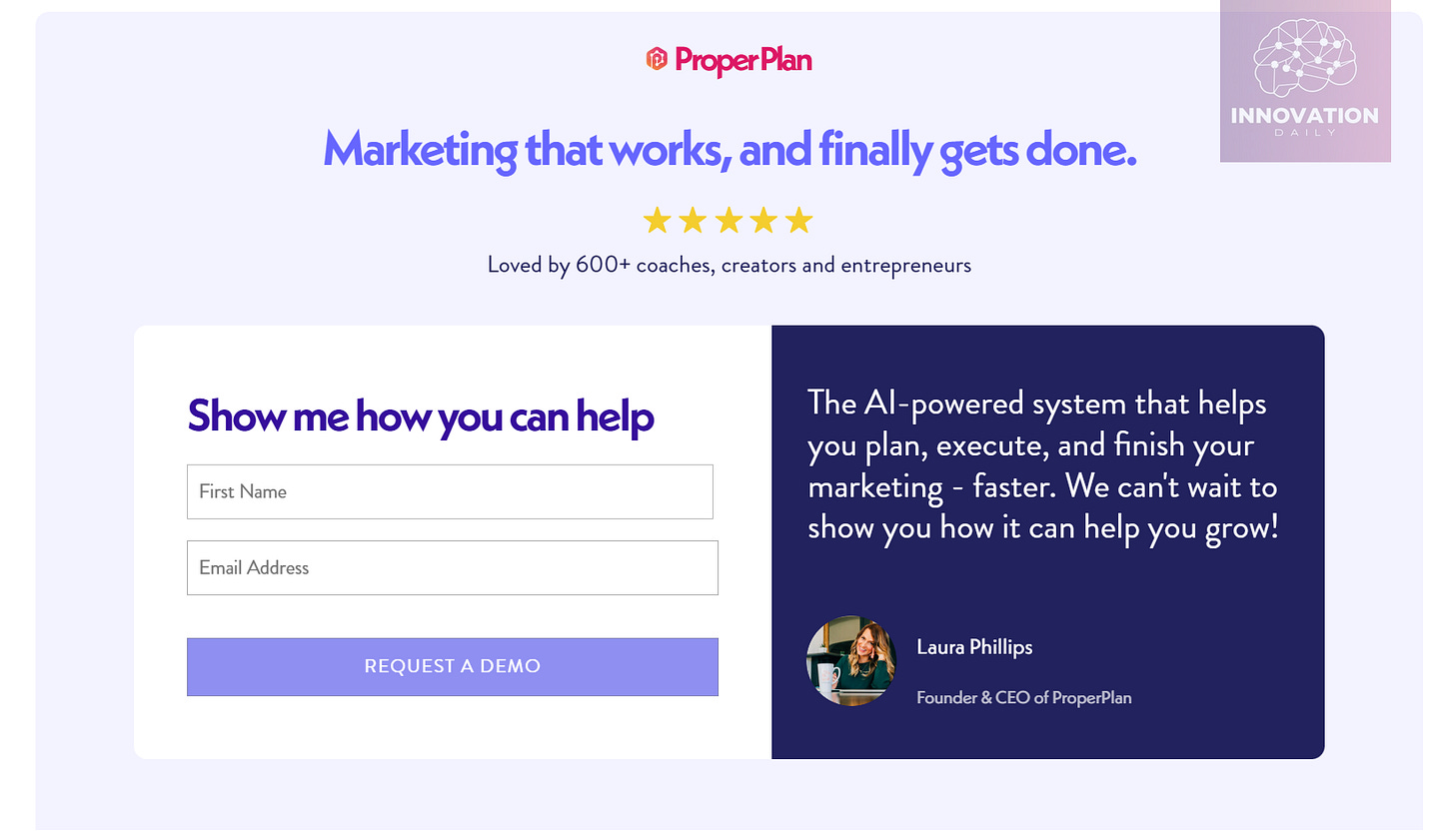Never Do the Same Thing Twice
oday's featured startup is building an AI that watches how you work once — then takes care of it for you, forever
Project Overview
Technically speaking, Twin is an AI tool that “turns text into actions.”
In essence, it’s a platform for automating small business operations.
Its motto says it all: “Never do the same thing twice.”
The idea is simple — help small business owners and their lean teams avoid wasting time on repetitive digital tasks.
Twin’s AI learns by watching a user complete a workflow once — then performs the same sequence automatically on demand.
For example, when hiring a new employee, Twin can automatically generate a contract from a standard template, upload it to DocuSign, send it for signing, order a laptop on Amazon according to preset specs, and register the new hire in Google Workspace, Notion, and other tools used by the company.
The same logic applies to countless workflows in HR, sales, development, and operations.
The result? A digital assistant that can handle a wide range of routine tasks in any small company.
At first, the team tried training their AI through text instructions — but it didn’t work well enough. Then they flipped the approach. Instead of language, they turned to computer vision.
Now, Twin’s AI watches what happens on the screen and listens to voice explanations through the microphone — learning tasks the same way people teach colleagues in real life: by showing and telling, not just by handing over a manual.
What’s the Gist?
Most AI startups today focus on content generation — websites, emails, articles, ads, or social media posts.
Twin chose a harder, more ambitious path: turning intent into action.
This is a tougher challenge because true automation requires end-to-end task execution, not just one isolated action.
And the process of teaching the AI shouldn’t be more complex or time-consuming than performing the task manually — otherwise, the value disappears.
In that sense, Twin resembles other young startups exploring automation for small businesses — like AskToSell, a European platform that automates small-scale sales. Their AI autonomously reaches out to leads, negotiates, and even closes deals, involving the human only when it’s time to confirm or reject the final offer.
AskToSell raised just €100K in pre-seed funding — but its target market overlaps perfectly with Twin’s: the long tail of small businesses that make up the global economy.
Here’s a staggering fact:
80% of small businesses have no employees at all.
16% have between 1 and 19 employees.
And only 4% have more than 20.
In the U.S. alone, small businesses make up 99% of all companies — that’s 33.2 million firms.
So Twin’s focus on this segment makes perfect sense.
Twin’s development roadmap — aptly named the “Master Plan” (a nod to Elon Musk’s 2006 Tesla blueprint) — consists of three stages:
Build a library of common workflows that cover 20% of all tasks but consume 80% of the time.
Enable companies to automate the remaining 80% of simple tasks using Twin’s AI engine.
Use accumulated data and experience to move toward automating complex and high-level workflows.
This “master plan” idea isn’t unique to Twin — other startups are adopting similar staged approaches:
Siro is building an AI sales coach that starts by analyzing calls, then gives personalized feedback, and finally learns to generate new coaching principles on its own.
Evolv AI helps optimize websites, starting with visual edits, then A/B testing, and finally using cross-client data to recommend conversion improvements.
Durable began with an AI website builder for small businesses and is now evolving into a full business automation suite.
Twin has already raised $3M in pre-seed funding (January 2024) to build its platform and populate its task library — even before officially launching.
Key Takeaways
Whatever your startup does — start with a three-step master plan.
It helps you move faster toward your vision without overbuilding too soon.
Stage 1: Build an MVP that validates your concept and generates early revenue.
Stage 2: Reinvent the product with broader functionality, informed by real-world usage.
Stage 3: Create the full-scale version you initially envisioned — refined by everything you’ve learned along the way.
Alternatively, apply this same structure to expanding your target audience — earning your way from niche to mainstream.
The broader direction ahead is clear:
AI platforms designed specifically for small businesses — simple to use, yet capable of handling full business workflows from start to finish.
There’s already movement in this space. For example, the British startup ProperPlan is building an AI that generates actionable plans to help small business owners achieve their goals — and has raised £300K to do it.
The next wave of opportunity lies here:
What other small business processes can AI automate?
How can we make these tools powerful yet simple?
And how can we break down the journey to an “ideal” product into three sellable, standalone stages?
Company Info
Twin
Website: twin.so
Latest Round: $3M, 31.01.2024
Total Funding: $3M across 1 round




